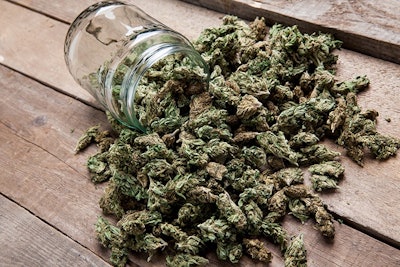
The launch of New Jersey’s long-awaited adult-use cannabis market is set for April 21, Gov. Phil Murphy announced April 14 on Twitter.
“Starting on April 21st, adults ages 21+ will be able to legally purchase cannabis and cannabis products without a medical card,” Murphy tweeted. “This is a historic step in our work to create a new cannabis industry.”
Murphy’s announcement came just three days after the New Jersey Cannabis Regulatory Commission (CRC) approved seven medical cannabis dispensaries to serve the adult-use market.
Those seven retailers—Acreage, Curaleaf, Columbia Care, Verano, Ascend Wellness, GTI and TerrAscend—had to agree that the surge of adult-use customers would not interrupt access for medical cannabis patients, according to the Associated Press, and they must reserve parking spaces and maintain operating hours specifically for patients.
The dispensaries must also meet social equity standards outlined in New Jersey’s cannabis law, the news outlet reported, such as providing technical knowledge to new cannabis businesses, especially social equity applicants, which are defined as those located in economically disadvantaged parts of the state and those with past cannabis-related offenses.
“We remain committed to social equity,” Cannabis Regulatory Commission Chair Dianna Houenou told AP in a statement. “We promised to build this market on the pillars of social equity and safety. Ultimately, we hope to see businesses and a workforce that reflect the diversity of the state.”
There are roughly 130,000 registered medical cannabis patients in New Jersey, AP reported, and the CRC has estimated that there are 800,000 potential adult-use consumers, as well as fewer than 800,000 “tourism” consumers.
While it is unclear how much tax revenue New Jersey will rake in from adult-use cannabis sales, Murphy’s budget for fiscal year 2023 estimates $19 million in tax revenue, according to AP.
The state’s cannabis law levies a 6.625% sales tax on adult-use sales, with 70% of the revenue generated earmarked for areas disproportionately impacted by the war on drugs, the news outlet reported. Municipalities can also levy a local sales tax of up to 2%.
New Jersey voters approved an adult-use cannabis legalization measure in the November 2020 election, and the market was initially expected to launch in February 2022.
Senate President Nicholas Scutari, D-Linden, announced last month that a special legislative committee will be formed to investigate the delayed adult-use rollout.
























